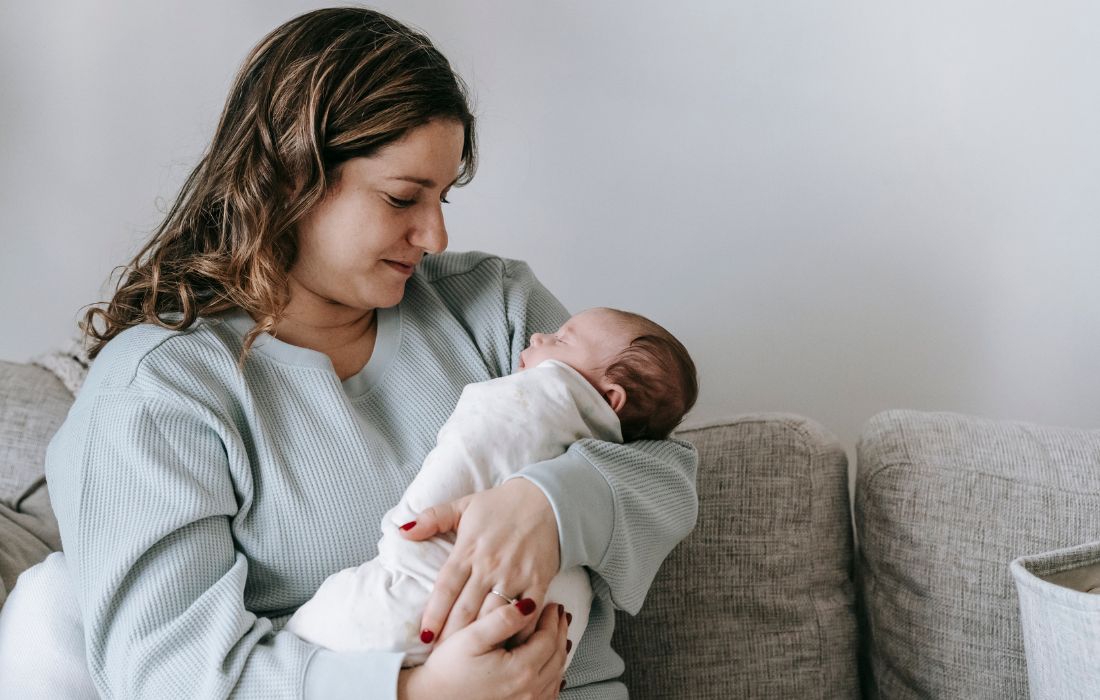 Every parent wants their baby to sleep through the night , but babies are not born knowing how to fall asleep on their own. They’ve been soothed by mom in the womb, and again when they enter the world and throughout infancy.
Every parent wants their baby to sleep through the night , but babies are not born knowing how to fall asleep on their own. They’ve been soothed by mom in the womb, and again when they enter the world and throughout infancy.
\But at some point, waking up every two hours to feed, soothe, and comfort a baby can become exhausting. Many parents find themselves waiting for that magic night at 4 months when their baby sleeps through the night…and then they find themselves at 7 months, 13 months, or 18 months, still waiting, wondering when their baby is going to get the memo that they are supposed to ‘sleep through the night’.
Believe it or not, babies are not programmed to put themselves to sleep. They’re conditioned to need help in that department. Think of sleep training like riding a bike: at first, your child doesn’t really know how to use the pedals, but with a little bit of testing and some struggle, he figures it out. He rides unsteadily around the yard on his new bike, training wheels helping him and parents encouraging him from the sidelines through verbal (and sometimes physical) reassurance. Then, one day, he is ready to take a spin without them. It’s a proud moment when you watch him wobble and almost not make it, but he does. You will probably want to run to his aid, but you know he can do it, so you let him figure it out. Sleep coaching is strikingly similar, with similar goals.
Sleep is a Learned Skill
Yes, it’s obvious, but the primary reason that parents sleep train is to get more sleep. This can only happen if you are patient and help them learn. You aren’t going to be able to turn around 6 (or even 12 or 18 months) months of sleep habits overnight. But you can gently help your baby learn a new skill. Just like learning to ride a bike, babies need to learn how to sleep, and they need their parents to teach them.
Learn to Self-Soothe.
Self-soothing is an important life skill. It determines how you handle a rough day at work, or losing the baseball game, or getting your heart broken. And it all starts with your baby’s sleep. Self-soothing doesn’t mean tears. It can mean allowing your baby to fuss a bit while she figures out what works for her.
In a study at the University of California, Davis conducted in 2002, researchers attempted to answer the question of why some babies more readily self-soothe. The researchers recorded video of 80 babies at 1 month, 3 months, 6 months, 9 months, and 12 months. The results were quite interesting. Although all of the children slept in a crib, and all of the babies awoke multiple times each night, some (the self-soothers) were able to put themselves back to sleep without parental help.
These children were also found to spend less time being helped back to sleep as they grew older. Those that needed parental help actually needed MORE assistance getting back to sleep as they grew. In addition, these children were consistently placed into bed already asleep, which shows that sleep problems don’t just “go away on their own”.
Teach Good Sleep Habits.
Did you know that it takes the average person approximately 20 minutes to fall asleep? The same goes for your baby! You can help to set the atmosphere with a relaxing bedtime routine, and then some quiet time to fall asleep. It’s important that your baby be given time to process the day, or decompress, just like you. If your baby is over stimulated by too much activity, it’s going to be hard for them to find sleep. Instead, look at sleep training as the foundation of sleep for the rest of their lives. You’re effectively teaching them how to relax and go to sleep (not that they will actually use this skill as teenagers, but there is always hope!), so that they can be well rested and refreshed for the new day.
Provide Positive Reinforcement
Sleep coaching is all about reinforcing new good sleep habits (going to bed AWAKE, the ability to put oneself back to sleep after a brief awakening), and replacing poor sleep habits (such as rocking or feeding to sleep). This is done gently, to help your baby ease into their new routine. Much like the bike example earlier, you wouldn’t expect your child to go from learning to pedal to riding around the block. You need some time with training wheels to make possible.
With sleep training, you are effectively helping your baby learn to sleep with training wheels-especially if you use The Shuffle. You’re not going to do it for him, but you’re there to help him when he needs it through both vocal and physical reassurance.
And, last, but definitely not least…
Instill Confidence
Your baby may not realize this, but by sleep coaching her, you’re placing confidence in their ability to learn to fall asleep by herself, and that’s a big (and sometimes hard) step for parents! Additionally, you’re showing confidence in your ability to help your baby learn a life skill.
What do you hope to accomplish through sleep coaching?



